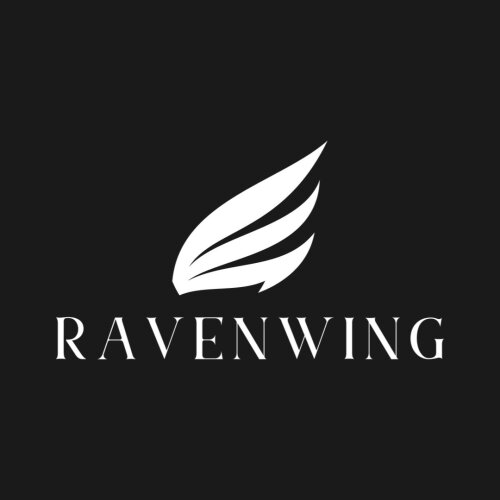Best Agriculture Lawyers in Bang Na
Share your needs with us, get contacted by law firms.
Free. Takes 2 min.
List of the best lawyers in Bang Na, Thailand
About Agriculture Law in Bang Na, Thailand
Located in the eastern part of Bangkok, Bang Na has seen increasing urbanization but still retains several agricultural pockets and related businesses. Agriculture in Bang Na encompasses small-scale farming, urban gardens, hydroponics, plant nurseries, and distribution hubs for produce entering or leaving the Bangkok metropolitan area. As agriculture adapts to the urban landscape, it intersects with land use law, environmental regulations, water management, and modern business practices. Thailand's agriculture sector is highly regulated to protect public health and ensure sustainable use of resources, making legal knowledge crucial for anyone involved in this field in Bang Na.
Why You May Need a Lawyer
Legal assistance in the agriculture sector in Bang Na may be needed for various reasons. Common situations include:
- Resolving land ownership and usage disputes.
- Navigating zoning regulations that affect agricultural activity.
- Obtaining the right licenses or permits for farming or selling produce.
- Addressing labor law issues for farm workers or employees.
- Handling contract negotiations with buyers, suppliers or distributors.
- Understanding and complying with environmental laws related to chemicals, water use, or waste management.
- Registering or protecting intellectual property, such as new plant varieties or trademarks for farm products.
- Managing succession, inheritance, or transfer of agricultural property.
- Dealing with import, export, and distribution logistics that require compliance with national and local regulations.
An experienced agricultural lawyer can help guide farmers, entrepreneurs, or investors through these issues to reduce risks and ensure legal compliance.
Local Laws Overview
Agriculture in Bang Na is governed not only by national statutes but also by local regulations enforced by the Bangkok Metropolitan Administration. Here are key legal areas:
- Land Use and Zoning: Agricultural activities are subject to Bangkok’s urban planning regulations, determining where farming is allowed or restricted.
- Land Title and Registration: Ownership and rental agreements must be formalized, and various title deeds (such as Nor Sor 3 or Chanote) exist with specific rights.
- Environmental Regulations: Farming practices must comply with rules limiting chemical use and managing water resources to prevent pollution.
- Licensing and Permits: Certain crops, seeds, and animal products require specific licenses at both the local and national level.
- Labor and Employment Law: Workers must receive proper contracts and benefits as outlined under Thai labor law, with special provisions for migrant or seasonal labor.
- Market and Trading Laws: Local taxes, business registration, and trading permits apply to selling produce, whether in local markets or through distribution centers.
- Health and Safety: Compliance with food safety, pesticide use, and storage standards is regulated by national agencies but enforced by local officials.
Navigating these laws often requires detailed local knowledge and compliance with changing municipal policies.
Frequently Asked Questions
What kind of farms operate in Bang Na?
Most agricultural activities in Bang Na are small-scale, ranging from urban vegetable plots and flower nurseries to aquaponic or hydroponic systems and distribution centers for fresh produce.
Can foreigners own agricultural land in Bang Na?
Thai law generally restricts foreign ownership of land, including agricultural land. However, certain corporate structures, leases, or investment schemes may allow limited usage or joint ventures. Legal advice is essential.
What licenses might I need to start a farm in Bang Na?
Depending on the type and size of the operation, you may need agricultural permits, business licenses, pesticide use licenses, and sometimes food safety certifications to sell produce.
Are there restrictions on using chemicals or fertilizers?
Yes. The use of pesticides, fertilizers, and similar substances is regulated. Farmers must comply with guidelines set by the Department of Agriculture and relevant health and safety standards.
How can I resolve land disputes or boundary issues?
Disputes over boundaries or land usage are common. Negotiation, mediation, or court proceedings may be needed, and official title deeds are crucial in proving rights.
What protections do agricultural workers have in Bang Na?
Agricultural workers are covered under Thai labor laws, including minimum wage, overtime, health and safety, and rights for migrant workers. Employers must comply with these requirements.
How does urban zoning impact new farms or agri-businesses?
Zoning regulations may restrict or limit where certain types of farming can be carried out. Consulting with local authorities and lawyers before starting an operation is recommended to avoid penalties.
Are there organic farming or sustainability incentives?
Both national and local authorities offer programs and incentives for organic or sustainable farming, though eligibility and application procedures vary. Legal guidance can help navigate these options.
Can I build structures like greenhouses or farm stores on my land?
Building new structures usually requires permits and compliance with zoning and construction regulations. Unauthorized construction can result in fines or demolition orders.
What should I do if I am accused of violating agricultural regulations?
Seeking immediate legal advice is important. Lawyers can help negotiate with authorities, represent you in hearings, and work to resolve the situation or mitigate penalties.
Additional Resources
For further help and official information on agriculture in Bang Na, these resources are recommended:
- Bangkok Metropolitan Administration (BMA): For local permits, land use, and urban planning questions.
- Department of Agriculture (Ministry of Agriculture and Cooperatives): For regulations, certifications, and pesticide usage rules.
- Department of Land: For issues related to land title, registration, and boundary disputes.
- Office of Agricultural Economics: For market information, crop statistics, and policy updates.
- Thai Chamber of Commerce and local cooperatives: For business support and farmer networks.
Contacting these bodies or visiting their local offices in Bangkok can provide updates on rules, available programs, and enforcement procedures.
Next Steps
If you believe you need legal help with an agricultural issue in Bang Na, here are steps you can take:
- Gather relevant documents, such as land deeds, business licenses, sales contracts, or correspondence with authorities.
- Identify your specific legal questions or problems, such as land disputes, regulatory compliance, or licensing issues.
- Consult a lawyer or law firm experienced in Thai agriculture law, ideally with local knowledge of Bang Na. Many offer initial consultations to assess your situation.
- Prepare to explain your goals, challenges, and any deadlines you face to your legal counsel.
- Follow legal advice carefully, submit paperwork on time, and keep records of all communications and official responses.
Prompt legal guidance can help prevent costly mistakes, protect your rights, and ensure your agricultural operations in Bang Na remain compliant and successful.
Lawzana helps you find the best lawyers and law firms in Bang Na through a curated and pre-screened list of qualified legal professionals. Our platform offers rankings and detailed profiles of attorneys and law firms, allowing you to compare based on practice areas, including Agriculture, experience, and client feedback.
Each profile includes a description of the firm's areas of practice, client reviews, team members and partners, year of establishment, spoken languages, office locations, contact information, social media presence, and any published articles or resources. Most firms on our platform speak English and are experienced in both local and international legal matters.
Get a quote from top-rated law firms in Bang Na, Thailand — quickly, securely, and without unnecessary hassle.
Disclaimer:
The information provided on this page is for general informational purposes only and does not constitute legal advice. While we strive to ensure the accuracy and relevance of the content, legal information may change over time, and interpretations of the law can vary. You should always consult with a qualified legal professional for advice specific to your situation.
We disclaim all liability for actions taken or not taken based on the content of this page. If you believe any information is incorrect or outdated, please contact us, and we will review and update it where appropriate.










